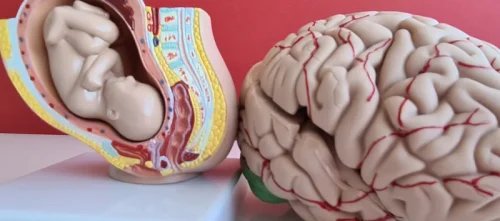
Elsewhere, intra-CA1 microinjection of D1R antagonist impaired CBD’s suppressive impact on the acquisition and expression phases of METH-induced CPP in rats (Nouri et al., 2021). In our recent study, intra-NAc administration of either D1R or D2R antagonist impaired CBD’s suppressive effect on the expression phase, while just a D2R antagonist alone inhibited the CBD’s impact on the acquisition phase of the METH-induced CPP (Sharifi et al., 2021). Moreover, CBD’s influence on the rewarding characteristic of morphine in the CPP paradigm has also been evaluated. CBD (10 mg/kg) pretreatment effectively prevented opioid reward in mice (Markos et al., 2018) (Table 1). While CBD does not appear to be reinforcing on its own, its impact on cannabis-related addictive behaviors in animal models remains unclear.
Potential Risks

Further, CBD shifted the cocaine dose-response curve downward and lowered the breaking point under a progressive-ratio schedule of reinforcement in rats (Galaj et al., 2020) (Table 1). In terms of METH, CBD (80 mg/kg; IP) reduced the motivation towards METH SA in rats (Hay et al., 2018). Schematic representation of the mechanisms underlying the CBD’s actions on the effects were elicited by drug abuse. Paper subject to independent expert blind peer review by minimum of two reviewers. Overall, preliminary data suggest a possible beneficial impact of CBD on the reinforcing effect of cannabis, while a case report has shown positive outcomes for one patient treated with CBD during the withdrawal and relapse phase of cannabis dependence.

Common Side Effects of CBD
The clinical studies that are currently underway will provide relevant information to improve our knowledge about the efficacy and safety of CBD for the treatment of SUD. One of the first reports suggesting the therapeutic potential of CBD for the modulation of cocaine rewarding properties employed the CPP paradigm. In Sprague-Dawley rats, CBD (5 mg/kg, i.p.) did not change the conditioning score but enhanced CPP extinction (Parker et al., 2004). Also, CBD (10 mg/kg, i.p.) disrupted the reconsolidation of place preference in rats and this effect was present for 2 weeks (de Carvalho and Takahashi, 2017). Very recently, Chesworth and Karl exhaustively explored CBD actions (10 mg/kg, i.p.) on the acquisition, consolidation, reconsolidation, extinction, and drug-primed reinstatement of cocaine (15 mg/kg) in the CPP paradigm. CBD significantly reduced the preference for the cocaine-context and the consolidation of cocaine memory.
CBD and the brain
- A 2020 study found that full-spectrum hemp-extracted CBD reduced neuropathic pain in mice.
- The main objective of this review is to systematically examine the existing preclinical and clinical evidence on the effects of CBD on addictive behaviors.
- CDC released a Health Alert Network (HAN) Health Advisory in 2021 to inform consumers that CBD can be synthetically converted into Delta-8 THC, which is psychoactive and not well understood.
- The National Center for Complementary and Integrative Health cautions that CBD may be harmful to some people.
- Repeated treatment with CBD (20 mg/kg, i.p.) blunted the motor behavioral response induced by a challenge dose of cocaine plus caffeine (Prieto et al., 2020).
CBD’s burgeoning popularity has been fueled in part by the compound’s purported mental health-boosting properties. However, some people may hesitate to use such products for fear that CBD might have the same potential for addiction as cannabis. Thus, the great and growing interest in CBD as a new drug for AUD management is more than evident. However, further studies https://ecosoberhouse.com/ are warranted to shed light on the underlying brain mechanisms involved as well as on pharmacokinetics aspects such as dose, treatment duration, route of administration or pharmaceutical formulation. Although these findings support the idea of marijuana as a “gateway drug,” the majority of people who use marijuana don’t go on to use other “harder” drugs.
Where does CBD come from?
Despite its Schedule I status in the US by the DEA, and lack of control by the FDA, CBD products are sold across the US and the internet. No medication should be prescribed or recommended until it is proven safe and effective for each indication under consideration. In addition, it is important to reflect whether the medication is safe for each individual based is cannabidiol addictive on his or her health, age, genetics, chronic illnesses, and other medications (due to the problem of drug-drug interactions). The goal of this review is to inform clinicians, pharmacists, nurses, patients, public health authorities, and policymakers about CBD’s AEs, toxicities, and drug-drug interactions that should be evaluated prior to prescribing CBD.


What treatments are available for marijuana use disorder?
- Therefore these results demonstrate that CBD modifies the reward properties of METH via D2R in the HIP (Hassanlou et al., 2021).
- CBD might help treat anxiety disorders, although there have not been many trials to look at CBD’s anxiety-relieving effects in humans.
- Drug addiction is a chronically relapsing disorder characterized by the compulsive desire to use drugs and a loss of control over consumption.
